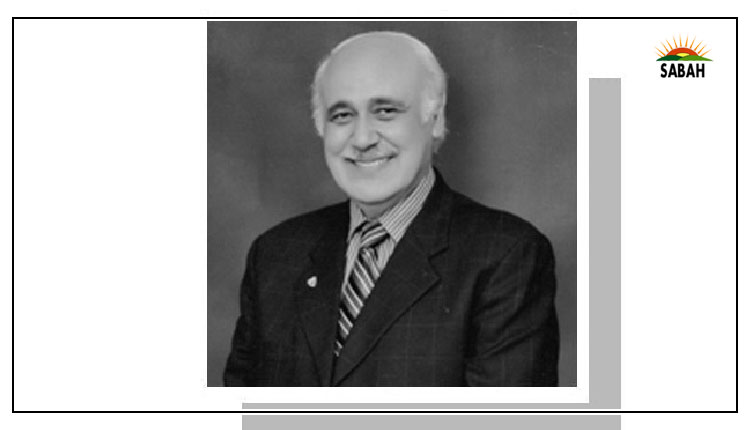‘Noli me tangere’….F.S. Aijazuddin
THE term untouchable has a different connotation in each culture and religion. To Christians, the words noli me tangere are attributed to Jesus Christ who, after his resurrection, deterred his follower Mary Magdalene from touching him.
In other cultures, untouchability, although officially discouraged, has been practised nevertheless in China, against the Tanka people; in Europe, the Romani gypsies; in France, the Cagots; in Japan, the Burakumin; in Korea, the Baekjeong; in Nigeria, the Ohuhu and Osu, in Tibet, the Ragyabpa; in Yemen, the Al-Akhdam; in South Africa, the Bantus (Blacks) and the Coloureds; and in the United States, the Blacks and Hispanics.
Discrimination abounds wherever humans are found. Man is an unsocial man. He creates distinctions from his fellow men, enforcing practices that are discriminatory, humiliating, exclusionary and exploitative.
In India, the worlds largest functioning democracy, now the worlds most populous nation, and soon to be the worlds largest saffron theocracy, untouchability is the hate that dare not speak its name. It had been abolished officially in the Indian constitution of 1950, because of the influence of its major author Dr B.R. Ambedkar, himself an untouchable Dalit.
The shelf life of our political leaders is cruelly brief.
Another Dalit to achieve a ministerial position in Indian politics was Jagjivan Ram. He served in the cabinets of both Jawaharlal Nehru and his daughter Indira Gandhi. She gave Jagjivan Ram the ministries of defence (1970-74) and of agriculture and irrigation (1974-77), but while she was prepared to share a table with him in cabinet meetings, she preferred not to offer him a place at her dining table.
Today, Muslims in India are the new Dalits. They are beyond being untouchable. They are unwanted in their homeland.
In Pakistan, the word untouchable is closer to the Cambridge Dictionary definition. Its entry reads: not able to be punished, criticised, or changed in any way.
Name one individual or institution in our society that does not regard itself if not at par, then above or beyond the law.
Parliament seeks to curtail the powers of the judiciary. The judiciary retaliates with a pre-emptive strike hamstringing the legislature. The law is above the law.
Political parties demand democracy in the country but eschew elections within their own parties. Benazir Bhutto handed the PPP to her widower Asif Zardari, who shares it with their son Bilawal. Nawaz Sharif yields the prime ministership to his younger brother Shehbaz Sharif and the PML-N party to his daughter Maryam Nawaz. Imran Khan nominates Shah Mahmood Qureshi as his unelected successor.
The Election Commission which has had five years to oil and service the electoral machinery tells the Supreme Court that it cannot hold the elections in May as demanded by law, but is happy to do so at some future unspecified date. It has flouted constitutional provisions and also evaded the diktats of the Supreme Court.
Once, an Indian parliamentarian was complimented on Indias success in holding general elections. He replied: Any fool can hold elections. The maturity of our democracy was when Mrs Gandhi lost the 1977 elections, she handed over power to the Janata Party. And when it lost the 1979 elections, it handed power back to her Congress party.
Another lesson was provided by the Indian experience after Mrs Gandhis declaration of a national emergency in 1975. It provoked such outrage that there were rumours of a military takeover by the field marshal, Sam Manekshaw. According to him, during their meeting, she questioned him about rumours circulating in Delhi of a military coup. He recalled later that he put his long nose near her long nose and from this unlikely proximity, reassured her that as long as he was chief, she had nothing to fear from him.
Each elected prime minister in Pakistan craves a similar reassurance from his uniformed subordinate. The present prime minister Shehbaz Sharif is unlikely to repeat the mistake made by his elder brother, when in 1998, emboldened by the ease with which he removed COAS General Jehangir Karamat, Nawaz attempted to remove his successor General Pervez Musharraf. He paid for his petulance.
Faced with the prospect of stormy general elections whenever, Shehbaz Sharif must view his contemporaries with envy. N. Modi PM since 2014 is set for another five-year term. The Bangladeshi PM, Sheikh Hasina Wajed, has been in power since 2009. Turkish President Erdogan, after 20 years in the saddle, has just been re-elected to ride for a third term. President Xi Jinping and the de facto Saudi ruler Mohammed Bin Salman are secure for life.
By comparison, the shelf life of our own political leaders is cruelly brief. How they must wish for that untouchability that would protect them from being punished, criticised, or changed in any way!
The writer is an author.
www.fsaijazuddin.pk
Courtesy Dawn, June 1st, 2023












